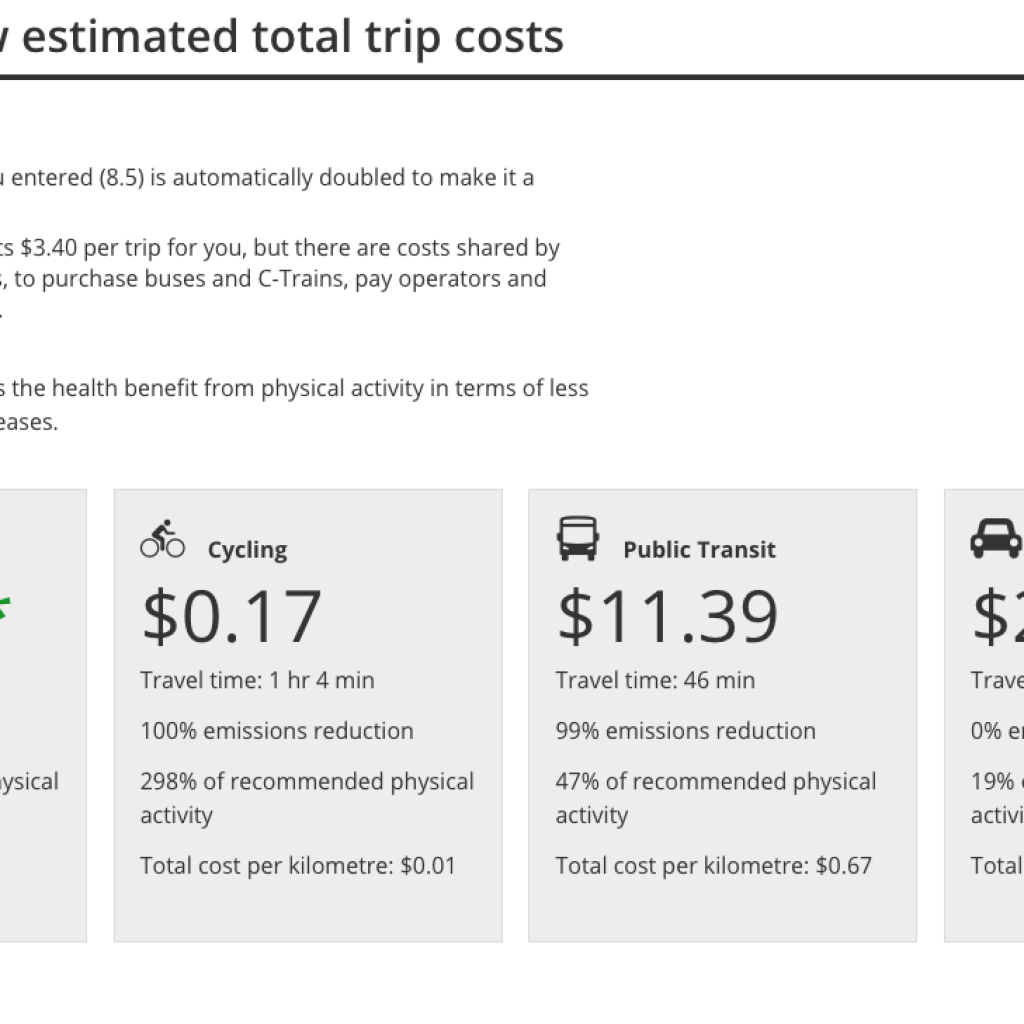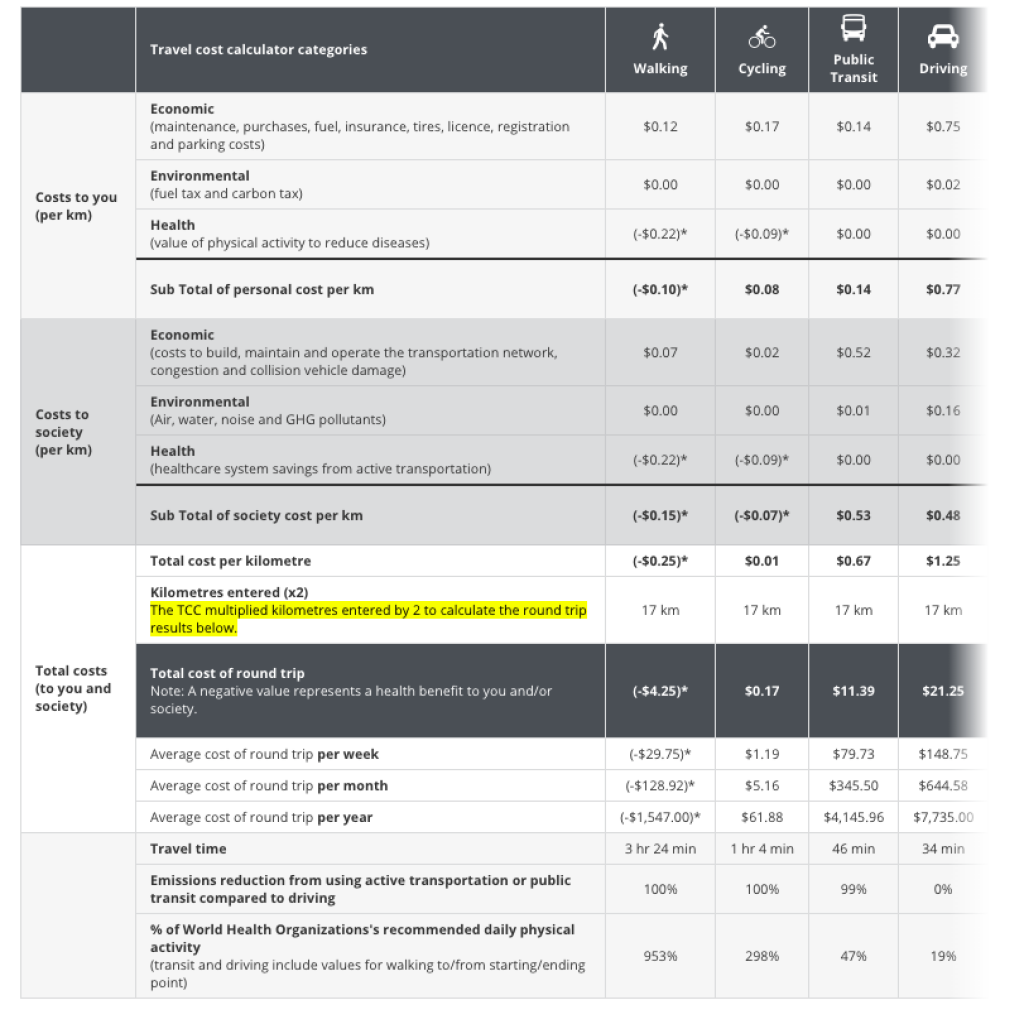Thursday was David Clarke’s first time cycling to work.
As a frequent recreational bike rider he said he was encouraged to cycle by his co-workers – a lot of whom use their bikes for their daily work commute.
Being new to an office job, he decided to try biking for the health benefits.
Clarke said the time it takes him to get to work on a bike is the same as driving, but recognizes that isn’t the case for everyone. The amount of bike lanes surrounding his house helped make the bike ride easy and fast for him.
“Two things are major factors for me: The time it takes to get to work biking versus driving isn’t much different, so I might as well bike, and also the calculator,” he said.

Step one of the Cost Calculator has users input their start and end point to generate trip details which are expanded in step two here. 
Step three shows a detailed breakdown of the costs of different modes of transportation.
Using the City of Calgary’s Travel Cost Calculator Tool helped him understand exactly how much money he was saving by bike riding instead of driving to work. According to the calculator Clarke’s cost to drive to work – normally a 30-40 minute drive – was approximately $28 round-trip and this tool put that in perspective.
Clarke said the tool broke down costs like average insurance for cars and the added wear on sneakers for walking. He wasn’t aware of the tool before his bike ride into work today but, he said, using the calculator will influence which mode of transportation he chooses in the future.
“It helps quantify how much I’m saving,” Clarke said.
It’s about the future of Calgary
Chris Blaschuk is part of Calgary’s Next 20 project and said they wanted citizens to see the different costs associated with their travel choices.
Citizen understanding of immediate, longer term and societal costs is one of the project goals. Infrastructure like roads, bridges, and street-lights, etc., he said, are a direct societal cost from choosing to drive. This, he explained, is shared cost because the city gets funding from the provincial and federal government, as well as local property taxes.
“Raising awareness of some of the other costs that are being incurred by society as people travel,” he said.
Blaschuk said he doesn’t expect people to walk crazy long distances just because of the health benefits shown on the tool. What it might be useful for, he said, is helping people determine where in the city to live, using proximity to things like work and play – and the costs associated – as a factor in the decision.

For some Calgarians the distance between their home and work might mean driving is the only feasible option and the calculator tool will help them understand the costs of that over time.
“Long-term, the cumulative effect of how our city has been built out, when things aren’t close to one another, it increases travel cost greatly for a lot of our citizens,” Blaschuk said.
The Next 20 project is, in part, looking at how to make Calgary an affordable city that’s also easy to get around. With the population expected to continue increasing, this tool is hoping to inject information into the city about affordability.
“We’re really thinking about what kind of city we want in the future,” Blaschuk said.



